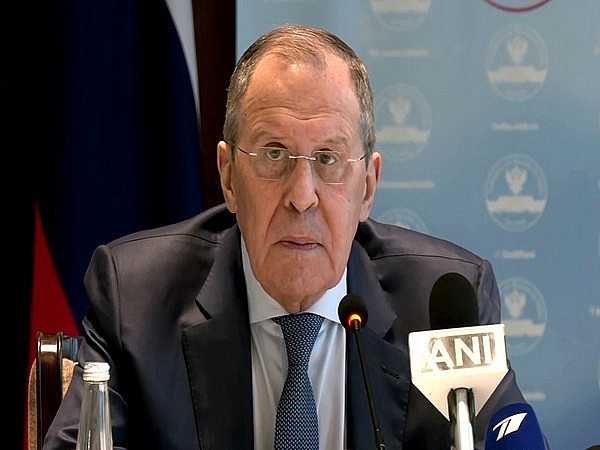 |
While addressing the 77th United Nations General Assembly, Mr Lavrov said that Security Council will be more democratic if countries from Africa, Asia & Latin America are included.
He said India and Brazil, in particular, are key international actors and should be counted for permanent membership in the council. Addressing the Assembly, Lavrov accused Western countries of throwing a fit over the referendum that is being conducted in Russian-controlled areas of Ukraine on becoming a part of their federation.
He said the United States is trying to turn the whole world into its “backyard”, and together with its partners, punishing dissenters from its world view, through what he called “illegal unilateral sanctions” which violate the UN Charter, and hurt poor citizens in poorer countries.
Earlier, India with 31 other countries in a joint statement on reforms stated that an expansion of the Security Council in both permanent and non-permanent categories, as well as reform in its working methods, is indispensable to making the body more representative, legitimate and effective, delegations reiterated.
The signatories of the joint statement stated that they reaffirm that adapting the United Nations to contemporary world realities necessarily requires urgent and comprehensive reform of the Security Council, the principal organ for international peace and security.
So far, 32 countries including India have called for urgent and comprehensive reforms in the UNSC to adapt the United Nations to contemporary world realities.
The signatories of the Joint Statement recognized that a resilient world needs reformed and effective multilateralism to deliver solutions for poverty, climate change, pandemics, global food security, terrorism, and international conflict.
The signatories include Brazil, Dominica, Grenada, Haiti, India, Jamaica, Mongolia, Nigeria, Papua New Guinea, South Africa, and Vanuatu.
On Thursday, India’s External Affairs Minister S Jaishankar hosted a meeting of the G4 countries and later tweeted, “Reiterated our joint commitment to work towards text-based negotiations that lead to reformed multilateralism. Will continue our cooperation towards the goal”.
In a veiled attack against China, EAM Jaishankar also stated that India is prepared to take up greater responsibilities, and negotiations for the much-needed UN Security Council reforms should not be blocked by procedural tactics and naysayers cannot hold the process “hostage in perpetuity.”
India, currently a non-permanent member of the 15-nation UN Security Council, will complete its two-year tenure in December this year when it will preside over the Council.
Underlining that India believes that multipolarity, rebalancing, fair globalisation, and reformed multilateralism cannot be kept in abeyance, Jaishankar said that the call for reformed multilateralism – with reforms of the Security Council at its core – enjoys considerable support among UN members.
“It does so because of the widespread recognition that the current architecture is anachronistic and ineffective. It is also perceived as deeply unfair, denying entire continents and regions a voice in a forum that deliberates their future,” he said.
In these turbulent times, the world must listen to more voices of reason. And experiences more acts of goodwill. India is willing and able on both counts, he said.
India has been at the forefront of the years-long efforts to reform the Security Council, saying it rightly deserves a place as a permanent member of the Council, which in its current form does not represent the geo-political realities of the 21st Century.
India, which is Chair of the Counter-Terrorism Committee this year, would be hosting a special meeting of the Committee in Mumbai and New Delhi on October 28-29. The meeting is aimed at highlighting the increase in the use of new technologies by terrorists and exploring courses of action to effectively deal with this threat.
Inviting all member states to participate in the meeting, Jaishankar said the world needs to create a global architecture that responds to the new tech tools deployed against open, diverse, and pluralistic societies.
“India has always espoused a cooperative, inclusive, and consultative approach to international relations,” he said.
“We believe and advocate that this is not an era of war and conflict. On the contrary, it is a time for development and cooperation,” he added.



